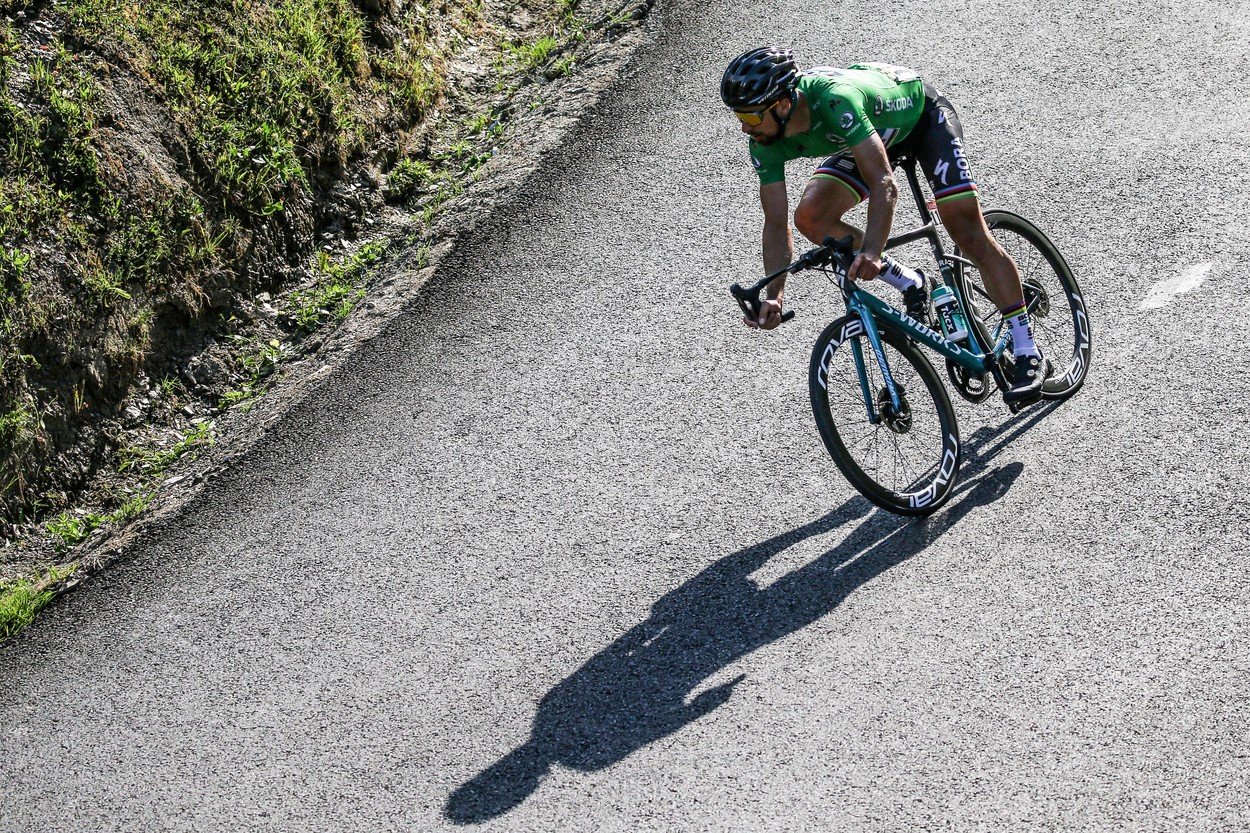Can you tell us about your beginnings as a pro bike mechanic? How did it all started for you?
I was a rider until the Junior category. Then I decided to join the army. Right after, I wanted to start something with cycling again so I started working as a team mechanic.
We guess that BORA-hansgrohe was not your first team in pro cycling?
I started with the Kalev Chocolate team which raced at continental level. In 2012, I joined the Pro-Continental team Champion-Systems and since 2013 until today, I work with Ralph Denk’s teams; NetApp-Endura, BORA-Argon18, and then BORA-hansgrohe at the World Tour level.

Let’s get right to the meat of this topic. The night before a race, what are the team mechanic’s must-dos and plans? The crucial parts of the work?
We start by cleaning the bikes first. During this, we also control everything from brake pads to tyres, chains, etc. We change everything necessary and, in the end, we also double check the batteries for the shifting systems. Sometimes, this can last up until midnight, depending on how far the previous finish was from the hotel. But if there was a major issue and we need to build a new bike for somebody, we have to work even longer.
What does the morning before the race look like for your team and yourself?
There are a lot of things to do but, actually, we do most of them the evening before. In the morning, we essentially put the bikes out of the truck, pump the tyres to the pressure decided for that day’s race, and put the bikes on the roof of the team’s cars.
At the start, we must check if everything is ready, things like the power meters, etc.
What would you say is the biggest challenge you have to deal with during the race?
I would not say that my job is a ‘big challenge’ per say, but I always need to follow the race super closely in order to be ready for flat tyres, crashes, and so on. Because then it’s really important to be fast. I guess that’s the big challenge!

What are the top 3 nightmares for bike mechanics during the race?
Definitely it is something like changing three frames after a big crash in rainy conditions!
But seriously, I would say that building a new bike overnight is really challenging. Sometimes, when riders get new bikes, or they change the model for some reason, it’s also a lot of work to make them feel comfortable on it.
Tyre punctures are the eternal question for amateurs. Why is there so many of them? As amateurs, we do not experience them as much as pro cyclists (yet we do!). Do you have a personal solution to this?
To be honest, these days we don’t suffer so many punctures. The products improved a lot and we use many different tyres for different challenges, like for TT or the cobbles. You may see a few punctures during a race on TV, but they are usually all from cyclists of different teams.
Which is the hardest Grand Tour for you and your team? Which is the nicest one?
The Tour de France is the hardest because of the pressure. It’s the most important race for the team, for its sponsors. There is A LOT of media attention, so that’s really stressful for everybody.
The Vuelta is nice. It’s a relaxed atmosphere there and you can enjoy more of your work and the race.

Your favourite monument?
Milano-Sanremo, because the final is always special. You never know if there will be an attack in the finale or a sprint finish.
The hardest one to manage?
Of course it’s Paris-Roubaix, already in the initial preparations. We have special Roubaix bikes there from Specialized, different tyres and all. We test the set-up for the race already with some riders half a year before! When the preparations are done, at a race like Roubaix you normally have a lot to do. There are many punctures, crashes, sometimes a rider will require a bike change. This race is hard even for the cars! It is really a demanding day for everybody.
Tech-wise, what do you think will be the next big things in cycling. For both the pros and amateurs.
I don’t know what’s coming up in the future, but at the moment disc brakes are a really big change in our sport. We already started the transition this season, in 2019, everybody in our team will be on disc brakes.
Your top 3 advices on how to properly maintain a bike at home?
Clean your bike regularly.
Check brake pads often enough.
Also check your tyres.




